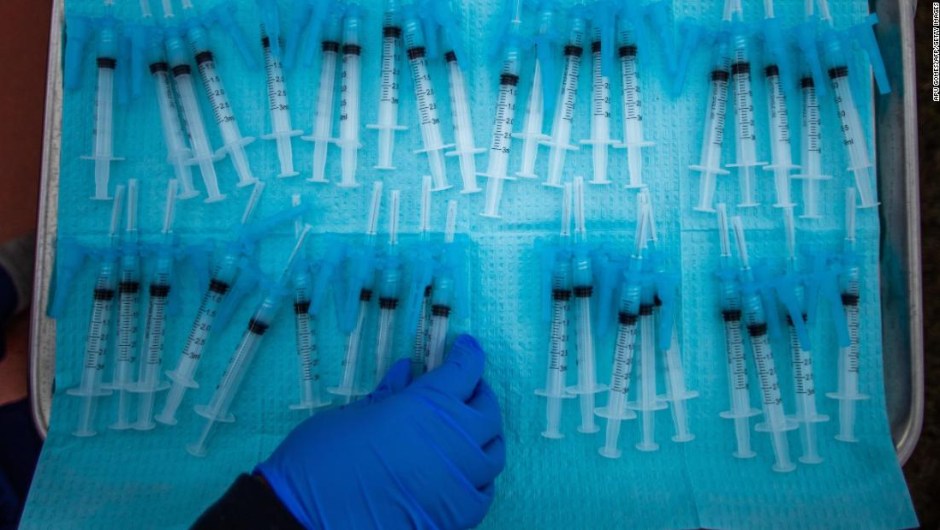(CNN) -
Johnson & Johnson's launch of the COVID-19 vaccine and its partnership with Merck means that President Joe Biden hopes the U.S. will have enough vaccines available to cover all adults by the end of May.
If Johnson & Johnson and its fellow vaccine makers Moderna and Pfizer deliver on their promises, the biggest question we will soon face is not whether we have enough doses of COVID-19 vaccines, but whether people will actually take them.
Recent polls suggest a continuing drop in the vaccine-hesitant population as more and more people get vaccinated in the United States.
LOOK: Symptoms that indicate that you already had covid-19: what we know so far
In the past two weeks alone, there have been two polls showing how much vacillation about vaccines has decreased.
The Kaiser Family Foundation survey found that 55% of adults say they now want a COVID-19 vaccine as soon as possible or that they have already received their first dose.
That's an increase of 47% in January and 34% in December.
While the percentage of reluctant people who 'get it only if they need to' or 'definitely don't' has remained fairly constant at or just above 20%, the hesitant 'wait and see' population has remained fairly constant. reduced by almost half during the last two months and has gone from 39% to 22%.
advertising
The Axios / Ipsos survey shows a similar trend line.
Only 13% of adults said in September that they would receive a Covid-19 vaccine as soon as it was available to them.
That increased to 27% in early December and 43% in early January.
Now 57% say they have already received the vaccine or will receive it as soon as possible.
As in the Kaiser survey, the vaccine-reluctant hardline population (that is, people who say they will not get the vaccine or will only get it if they are forced to) is basically the same size at the moment (18 %) than in September (23%) and early January (19%).
The number of people who say they will wait a period (from a few weeks to a year or more) to get the vaccine has dropped rapidly: 64% in September, 51% in early December, 38% in early January, and 28% actually.
MORE: Pfizer and AstraZeneca's coronavirus vaccines are highly effective in preventing severe cases, according to two studies
Unfortunately, it will be difficult to convince the population that they are resistant to the vaccine.
The fact that this proportion of the population has remained fairly constant (around 20%) is an indication that even a great deal of evidence on the effectiveness and safety of vaccines, and that it is our most viable way back. to a normally functioning society, it will not change their minds.
The good news is that the declining percentage of those in the middle (i.e. those who doubt the vaccine) is what we would expect as more and more people get safely vaccinated.
Even before the FDA approved vaccines, I pointed out that one of the main reasons for doubts about vaccines was that people wanted to know that the vaccine was safe and effective.
It remains true that willingness to receive the vaccine is correlated with understanding of the vaccine and knowledge of the people who have been vaccinated.
To achieve herd immunity through vaccination, scientists believe that between 70% and 90% of the population will need a vaccine.
We will only reach that percentage if more people in the vaccine-reluctant population are convinced to take the vaccine as soon as it is available to them.
That is why the next few months will be key.
Given Johnson & Johnson's one-shot regimen and Pfizer and Moderna's two-shot regimen, we're still a few months away from having enough vaccines for everyone.
If current delivery times for doses are maintained and the vast majority of people who doubt the vaccine become the ones who will receive the vaccine immediately, we could have enough vaccines for every adult who wants one even before the end of May. , and we will have a much better chance of containing the coronavirus.
Coronavirus Vaccine








